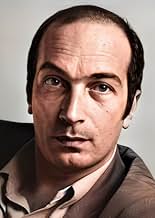IMDb रेटिंग
7.7/10
7.3 हज़ार
आपकी रेटिंग
1968 में पेरिस के बौद्धिक दृश्य में चौविस्टअलेक्जेंड्रे कई महिलाओं के साथ संबंधों को संतुलित करता है, जिनमें माता मेरी और यौन उत्पीड़ित वैरनिका शामिल हैं.1968 में पेरिस के बौद्धिक दृश्य में चौविस्टअलेक्जेंड्रे कई महिलाओं के साथ संबंधों को संतुलित करता है, जिनमें माता मेरी और यौन उत्पीड़ित वैरनिका शामिल हैं.1968 में पेरिस के बौद्धिक दृश्य में चौविस्टअलेक्जेंड्रे कई महिलाओं के साथ संबंधों को संतुलित करता है, जिनमें माता मेरी और यौन उत्पीड़ित वैरनिका शामिल हैं.
- पुरस्कार
- 3 जीत और कुल 1 नामांकन
Jean-Claude Biette
- Un homme aux Deux Magots
- (बिना क्रेडिट के)
Jean Douchet
- Un homme au Café de Flore
- (बिना क्रेडिट के)
Bernard Eisenschitz
- Maurice
- (बिना क्रेडिट के)
Jean Eustache
- Le mari de Gilberte
- (बिना क्रेडिट के)
- …
Caroline Loeb
- Une jeune fille qui lit le journal en terrasse
- (बिना क्रेडिट के)
Noël Simsolo
- Un homme au Café de Flore
- (बिना क्रेडिट के)
फ़ीचर्ड समीक्षाएं
In what could have been seen as a coup towards the sexual "revolution" (purposefully I use quotations for that word), Jean Eustache wrote and directed The Mother and the Whore as a poetic, damning critique of those who can't seem to get enough love. If there is a message to this film- and I'd hope that the message would come only after the fact of what else this Ben-Hur length feature has to offer- it's that in order to love, honestly, there has to be some level of happiness, of real truth. Is it possible to have two lovers? Some can try, but what is the outcome if no one can really have what they really want, or feel they can even express to say what they want?
What is the truth in the relationships that Alexandre (Jean-Pierre Leaud) has with the women around him? He's a twenty-something pseudo-intellectual, not with any seeming job and he lives off of a woman, Marie (Bernadette Lafont) slightly older than him and is usually, if not always, his lover, his last possible love-of-his-life left him, and then right away he picks up a woman he sees on the street, Veronika (Françoise Lebrun), who perhaps reminds him of her. Soon what unfolds is the most subtly torrid love triangle ever put on film, where the psychological strings are pulled with the cruelest words and the slightest of gestures. At first we think it might be all about what will happen to Alexandre, but we're mistaken. The women are so essential to this question of love and sex that they have to be around, talking on and on, for something to sink in.
We're told that part of the sexual revolution, in theory if not entirely in practice (perhaps it was, I can't say having not been alive in the period to see it first-hand), was that freedom led to a lack of inhibitions. But Eustache's point, if not entirely message, is that it's practically impossible to have it both ways: you can't have people love you and expect to get the satisfaction of ultimate companionship that arrives with "f***ing", as the characters refer over and over again.
The Mother and the Whore's strengths as far as having the theme is expressing this dread beneath the promiscuity, the lack of monogamy, while also stimulating the intellect in the talkiest talk you've ever seen in a movie. At the same time we see a character like Alexandre, who probably loves to hear himself talk whether it's about some movie he saw or something bad from his past, Eustache makes it so that the film itself isn't pretentious- though it could appear to be- but that it's about pretentiousness, what lies beneath those who are covering up for their internal flaws, what they need to use when they're ultimately alone in the morning.
If you thought films like Before Sunrise/Sunset were talky relationship flicks, you haven't met this. But as Eustache revels in the dialogs these characters have, sometimes trivial, or 'deep', or sexual, or frank, or occasionally extremely (or in a subdued manner) emotional, it's never, ever uninteresting or boring. On the contrary, for those who can't get enough of a *good* talky film, it's exceptional. While his style doesn't call out to the audaciousness that came with his forerunners in the nouvelle vague a dozen years beforehand, Eustache's new-wave touch is with the characters, and then reverberating on them.
This is realism with a spike of attitude, with things at time scathing and sarcastic, crude and without shame in expression. All three of the actors are so glued to their characters that we can't ever perceive them as 'faking' an emotion or going at all into melodrama. It's almost TOO good in naturalistic/realism terms, but for Eustache's material there is no other way around it. Luckily Leaud delivers the crowning chip of his career of the period, and both ladies, particularly Labrun as the "whore" Veronika (a claim she staggeringly refutes in the film's climax of sorts in one unbroken shot). And, as another touch, every so often, the director will dip into a quiet moment of thought, of a character sitting by themselves, listening to a record, and in contemplation or quiet agony. This is probably the biggest influence on Jim Jarmusch, who dedicated his film Broken Flowers to Eustache and has one scene in particular that is lifted completely (and lovingly) in approach from the late Parisian.
Sad to say, before I saw Broken Flowers, I never heard of Eustache or this film, and procuring it has become quite a challenge (not available on US DVD, and on VHS so rare it took many months of tracking at various libraries). Not a minute of that time was wasted; the Mother and the Whore is truly beautiful work, one of the best of French relationship dramas, maybe even just one of the most staggeringly lucid I've seen from the country in general. It's complex, it's sweet, it's cold, it's absorbing, and it's very long, perhaps too long. It's also satisfying on the kind of level that I'd compare to Scenes from a Marriage; true revelations about the human condition continue to arise 35 years after each film's release.
What is the truth in the relationships that Alexandre (Jean-Pierre Leaud) has with the women around him? He's a twenty-something pseudo-intellectual, not with any seeming job and he lives off of a woman, Marie (Bernadette Lafont) slightly older than him and is usually, if not always, his lover, his last possible love-of-his-life left him, and then right away he picks up a woman he sees on the street, Veronika (Françoise Lebrun), who perhaps reminds him of her. Soon what unfolds is the most subtly torrid love triangle ever put on film, where the psychological strings are pulled with the cruelest words and the slightest of gestures. At first we think it might be all about what will happen to Alexandre, but we're mistaken. The women are so essential to this question of love and sex that they have to be around, talking on and on, for something to sink in.
We're told that part of the sexual revolution, in theory if not entirely in practice (perhaps it was, I can't say having not been alive in the period to see it first-hand), was that freedom led to a lack of inhibitions. But Eustache's point, if not entirely message, is that it's practically impossible to have it both ways: you can't have people love you and expect to get the satisfaction of ultimate companionship that arrives with "f***ing", as the characters refer over and over again.
The Mother and the Whore's strengths as far as having the theme is expressing this dread beneath the promiscuity, the lack of monogamy, while also stimulating the intellect in the talkiest talk you've ever seen in a movie. At the same time we see a character like Alexandre, who probably loves to hear himself talk whether it's about some movie he saw or something bad from his past, Eustache makes it so that the film itself isn't pretentious- though it could appear to be- but that it's about pretentiousness, what lies beneath those who are covering up for their internal flaws, what they need to use when they're ultimately alone in the morning.
If you thought films like Before Sunrise/Sunset were talky relationship flicks, you haven't met this. But as Eustache revels in the dialogs these characters have, sometimes trivial, or 'deep', or sexual, or frank, or occasionally extremely (or in a subdued manner) emotional, it's never, ever uninteresting or boring. On the contrary, for those who can't get enough of a *good* talky film, it's exceptional. While his style doesn't call out to the audaciousness that came with his forerunners in the nouvelle vague a dozen years beforehand, Eustache's new-wave touch is with the characters, and then reverberating on them.
This is realism with a spike of attitude, with things at time scathing and sarcastic, crude and without shame in expression. All three of the actors are so glued to their characters that we can't ever perceive them as 'faking' an emotion or going at all into melodrama. It's almost TOO good in naturalistic/realism terms, but for Eustache's material there is no other way around it. Luckily Leaud delivers the crowning chip of his career of the period, and both ladies, particularly Labrun as the "whore" Veronika (a claim she staggeringly refutes in the film's climax of sorts in one unbroken shot). And, as another touch, every so often, the director will dip into a quiet moment of thought, of a character sitting by themselves, listening to a record, and in contemplation or quiet agony. This is probably the biggest influence on Jim Jarmusch, who dedicated his film Broken Flowers to Eustache and has one scene in particular that is lifted completely (and lovingly) in approach from the late Parisian.
Sad to say, before I saw Broken Flowers, I never heard of Eustache or this film, and procuring it has become quite a challenge (not available on US DVD, and on VHS so rare it took many months of tracking at various libraries). Not a minute of that time was wasted; the Mother and the Whore is truly beautiful work, one of the best of French relationship dramas, maybe even just one of the most staggeringly lucid I've seen from the country in general. It's complex, it's sweet, it's cold, it's absorbing, and it's very long, perhaps too long. It's also satisfying on the kind of level that I'd compare to Scenes from a Marriage; true revelations about the human condition continue to arise 35 years after each film's release.
10yarns
It is not an easy film to watch - it is over three and a half hours long and it is composed entirely of conversations. Yet it is so incredibly compelling and ruthlessly observational of the human character, that it is, in my humble opinion, one of the very greatest films of all time.
The film is depressing, cynical and cruel. (If you want something uplifting, see Jacques Rivette's fantastic Céline and Julie Go Boating, which was made around the same time). It shows the idealism of the late 1960s to be nothing different from the society that it was trying to change.
It involves a supposedly liberated ménage-à-trois between Alexandre (played by Jean-Pierre Leaud), Marie (Bernadette Lafont) and Veronika (Francoise Lebrun). Yet Alexandre is shown to be as chauvinistic and jealous as any other man. The women are exposed as being willingly subservient and defining their femininity through the male gaze.
The film is an extremely icy end to the highly revolutionary French New Wave. This movement was one of the most significant movements in film history and had a profound effect on cinema as we know it. Jean-Pierre Leaud was one of the key actors of the New Wave, having starred (among other films) in the influential Les Quatres Cent Coups (1959) by Francois Truffaut as a rebellious teenager. Director Jean Eustache is not as well known as other directors from the New Wave, but he should be.
There is no improvisation (unlike in John Cassavetes's similar films made in the US) and the dialogue comes from real-life conversations. The film is resonant with Eustache's personal experiences. For example, Francoise Lebrun was a former lover of Eustache. Eustache himself committed suicide in 1981 and the real-life person that the character Marie was based on, did too. The anger and bitterness all culminate in a harrowing monologue by Veronika delivered directly to the audience, breaking down the coldly objective nature of the rest of the film. This mesmerising, personal, and honest filmic statement remains one of the most revealing films of human nature around.
The film is depressing, cynical and cruel. (If you want something uplifting, see Jacques Rivette's fantastic Céline and Julie Go Boating, which was made around the same time). It shows the idealism of the late 1960s to be nothing different from the society that it was trying to change.
It involves a supposedly liberated ménage-à-trois between Alexandre (played by Jean-Pierre Leaud), Marie (Bernadette Lafont) and Veronika (Francoise Lebrun). Yet Alexandre is shown to be as chauvinistic and jealous as any other man. The women are exposed as being willingly subservient and defining their femininity through the male gaze.
The film is an extremely icy end to the highly revolutionary French New Wave. This movement was one of the most significant movements in film history and had a profound effect on cinema as we know it. Jean-Pierre Leaud was one of the key actors of the New Wave, having starred (among other films) in the influential Les Quatres Cent Coups (1959) by Francois Truffaut as a rebellious teenager. Director Jean Eustache is not as well known as other directors from the New Wave, but he should be.
There is no improvisation (unlike in John Cassavetes's similar films made in the US) and the dialogue comes from real-life conversations. The film is resonant with Eustache's personal experiences. For example, Francoise Lebrun was a former lover of Eustache. Eustache himself committed suicide in 1981 and the real-life person that the character Marie was based on, did too. The anger and bitterness all culminate in a harrowing monologue by Veronika delivered directly to the audience, breaking down the coldly objective nature of the rest of the film. This mesmerising, personal, and honest filmic statement remains one of the most revealing films of human nature around.
I put off reviewing it for quite a while; I just couldn't come to terms with its rejection of the New Wave. Eustache has given us the talkiest movie ever, if you except those marathon Rivette films from the same period (I survived a showing of Out One: Spectre).
The camera doesn't move: it is parked in front of the actors in cafes and restaurants. The close camera placement forces us to concentrate on the conversations, which are monologues by Alexandre interspersed with explosions from Veronika. The romantic word-spinning from Alexandre is of this ilk: "The day I stop suffering, I'll have become someone else," or "In May 1968 a whole cafe was crying. It was beautiful. A tear gas bomb had exploded... a crack in reality had opened up," or most poetically, "I don't do anything, I let time do it." The retorts from Veronika are sometimes astonishing in their savagery: "Watch out, you'll push in my Tampax."; "I've screwed the maximum of Jews and Arabs."; (serving tea)"I like the feel of a prick against my ass, even if it's soft. One sugar or two?" It's as if a Proust character somehow left his drawing room to go slumming with a woman out of L-F Celine's Death on the Installment Plan.
This film ought to be seen by anyone interested in French film of that period--the 70's--but be aware of the static, slow-moving nature of the work.
The camera doesn't move: it is parked in front of the actors in cafes and restaurants. The close camera placement forces us to concentrate on the conversations, which are monologues by Alexandre interspersed with explosions from Veronika. The romantic word-spinning from Alexandre is of this ilk: "The day I stop suffering, I'll have become someone else," or "In May 1968 a whole cafe was crying. It was beautiful. A tear gas bomb had exploded... a crack in reality had opened up," or most poetically, "I don't do anything, I let time do it." The retorts from Veronika are sometimes astonishing in their savagery: "Watch out, you'll push in my Tampax."; "I've screwed the maximum of Jews and Arabs."; (serving tea)"I like the feel of a prick against my ass, even if it's soft. One sugar or two?" It's as if a Proust character somehow left his drawing room to go slumming with a woman out of L-F Celine's Death on the Installment Plan.
This film ought to be seen by anyone interested in French film of that period--the 70's--but be aware of the static, slow-moving nature of the work.
10hasosch
Unfortunately, Jean Eustache (1938-1981) belongs like so many once leading French film makers nowadays to the great unknown ones whose movies are hard to find and are not released on international DVDs. Since we have a good old-fashioned video-store in Tucson, I had the chance to watch this 3 1/2-hour marathon masterwork that is not boring for ten seconds.
Since we speak here about one of the most discussed (and most controversially discussed) movies of all times, let me tell you my impression that the endless dialogs, originally typical for the early "Nouvelle Vague" of a Jacques Rivette or Alain Resnais appear almost ridiculous in this movie. The dialogs are basically monologues, mainly the longest ones spoken by Jean-Pierre Léaud. The most characteristic feature is that the intersections of the speeches of two people is almost zero. Léaud, or his character, Alexandre, pleases to tell more about himself than about the topics he is seemingly to speak. Therefore, one can hardly speak about communication in this movie. It is well possible that the director had a gargantuan satire in mind against the idle running of the once so hotly discussed political and sociological ideas, but the type of man Alexandre exists to all times, we find him already in Petron's "Satiricon", which work has actually great resemblance with "The Mother and the Whore".
Alexandre does not only nothing, but he has developed an own kind of metaphysics about the absence of acting, at least acting in the sense of responsibility toward the society whose part he is. He mocks at the people who run to work at 7 c'clock in the morning, when he is just busy having his last drink before he goes to bed in the apartment of one of his girlfriends from whose money he lives. He is unable to speak one sentence without quoting one of the leading thinkers between Nietzsche and Bernanos. Especially Sartre who is shown quickly in the French intellectual café "Aux Deux Magots", where Alexandre, too, is sitting all day, must serve as excuse for the life-style of Alexandre and his colleagues, because they suffer existential crisis from bourgeois nausea. However, the intellectual speeches of Alexandre seem to be rather pseudo-intellectual, and the sentences and quips he cites seem to come rather from a dictionary of quotations than from his actual reading of the respective books.
It is true: This movie demands an extremely broad European knowledge, especially the connoisseurship of French existentialist philosophy and there consequences to the 68 student revolution movement, but if you have this knowledge, than you will enjoy 215 minutes of your life by staring amazed into the TV and crying out with laughing like you have probably not done it since a long time.
Since we speak here about one of the most discussed (and most controversially discussed) movies of all times, let me tell you my impression that the endless dialogs, originally typical for the early "Nouvelle Vague" of a Jacques Rivette or Alain Resnais appear almost ridiculous in this movie. The dialogs are basically monologues, mainly the longest ones spoken by Jean-Pierre Léaud. The most characteristic feature is that the intersections of the speeches of two people is almost zero. Léaud, or his character, Alexandre, pleases to tell more about himself than about the topics he is seemingly to speak. Therefore, one can hardly speak about communication in this movie. It is well possible that the director had a gargantuan satire in mind against the idle running of the once so hotly discussed political and sociological ideas, but the type of man Alexandre exists to all times, we find him already in Petron's "Satiricon", which work has actually great resemblance with "The Mother and the Whore".
Alexandre does not only nothing, but he has developed an own kind of metaphysics about the absence of acting, at least acting in the sense of responsibility toward the society whose part he is. He mocks at the people who run to work at 7 c'clock in the morning, when he is just busy having his last drink before he goes to bed in the apartment of one of his girlfriends from whose money he lives. He is unable to speak one sentence without quoting one of the leading thinkers between Nietzsche and Bernanos. Especially Sartre who is shown quickly in the French intellectual café "Aux Deux Magots", where Alexandre, too, is sitting all day, must serve as excuse for the life-style of Alexandre and his colleagues, because they suffer existential crisis from bourgeois nausea. However, the intellectual speeches of Alexandre seem to be rather pseudo-intellectual, and the sentences and quips he cites seem to come rather from a dictionary of quotations than from his actual reading of the respective books.
It is true: This movie demands an extremely broad European knowledge, especially the connoisseurship of French existentialist philosophy and there consequences to the 68 student revolution movement, but if you have this knowledge, than you will enjoy 215 minutes of your life by staring amazed into the TV and crying out with laughing like you have probably not done it since a long time.
... is because of films like this.
Don't get me wrong. I like independent cinema, and particularly like good foreign films, but this film could have been cut by at least an hour.
I'll explain.
The film revolves around a self centered young man who professes he loves certain women, but is really looking for someone to love him. Enter a woman who doesn't love herself, but finds this same young man, taps his energy, and both wind up "flowering" for it.
This movie revolves around the sexual morays and politics of a small group of Parisians. The film starts out very strong. Actors present characters in an extended first act that we would like to get to know, but, unfortunately this pic becomes the poster boy for the proverbial "long boring French film" replete with characters who light up cigarettes and talk in either cafés or materially spartan rented rooms about how life should be different, and what it all means. Toss in an Oedipal complex/undercurrent, and you have the quintessential French avante-garde flick.
Huh.
Inspite of this there's some good material in this film, but director Jean Eustache (probably to make up for lack of scheduling and some technical aspects) throws a lot of dialog at the audience that would've have been better served with some visual cues.
All in all it shows how messed up an certain sect of French culture really is, and, perhaps ironically, drives home a realist message regarding the act of coupling.
Technically it's bare bones. Lots of natural lighting is fused with high contrast B&W cinematography, and to add to the rugged feel of the film the scratch track is used. Little to no looping of dialog. You can hear what pros call "room tone" as it was actually recorded during filming.
I could go off the deep end and call this film self-indulgent, pretentious et al, but will say instead that the exposition given to the story was "over-exposed" (for lack of a better term). The symbolism is fine, but a lack of visuals and a borderline in-you-face delivery of certain dialog, hampers what could have been a much better film. By that I don't mean commercially successful nor accessible, but a film that could have delivered the same gists, character and message without the flaunting its strive for artistic excellence.
Don't get me wrong. I like independent cinema, and particularly like good foreign films, but this film could have been cut by at least an hour.
I'll explain.
The film revolves around a self centered young man who professes he loves certain women, but is really looking for someone to love him. Enter a woman who doesn't love herself, but finds this same young man, taps his energy, and both wind up "flowering" for it.
This movie revolves around the sexual morays and politics of a small group of Parisians. The film starts out very strong. Actors present characters in an extended first act that we would like to get to know, but, unfortunately this pic becomes the poster boy for the proverbial "long boring French film" replete with characters who light up cigarettes and talk in either cafés or materially spartan rented rooms about how life should be different, and what it all means. Toss in an Oedipal complex/undercurrent, and you have the quintessential French avante-garde flick.
Huh.
Inspite of this there's some good material in this film, but director Jean Eustache (probably to make up for lack of scheduling and some technical aspects) throws a lot of dialog at the audience that would've have been better served with some visual cues.
All in all it shows how messed up an certain sect of French culture really is, and, perhaps ironically, drives home a realist message regarding the act of coupling.
Technically it's bare bones. Lots of natural lighting is fused with high contrast B&W cinematography, and to add to the rugged feel of the film the scratch track is used. Little to no looping of dialog. You can hear what pros call "room tone" as it was actually recorded during filming.
I could go off the deep end and call this film self-indulgent, pretentious et al, but will say instead that the exposition given to the story was "over-exposed" (for lack of a better term). The symbolism is fine, but a lack of visuals and a borderline in-you-face delivery of certain dialog, hampers what could have been a much better film. By that I don't mean commercially successful nor accessible, but a film that could have delivered the same gists, character and message without the flaunting its strive for artistic excellence.
क्या आपको पता है
- ट्रिवियाThis film is based on the real-life relationship between director Jean Eustache and actress Francoise Lebrun (who plays Veronika). The character based on her is named Gilberte in the movie and is played by Isabelle Weingarten.
- गूफ़Alexandre can be seen drinking a bottle of 1970 Gevrey-Chambertin, which would have been far too expensive for him to have purchased. This error is illuminated by his notable lack of money during the cafe scene, in which his date pays for his bill.
- कनेक्शनFeatured in The Story of Film: An Odyssey: European New Wave (2011)
- साउंडट्रैकIch weiß, es wird einmal ein Wunder gescheh'n
Written by Bruno Balz, Michael Jary and Ralph Benatzky
Performed by Zarah Leander
टॉप पसंद
रेटिंग देने के लिए साइन-इन करें और वैयक्तिकृत सुझावों के लिए वॉचलिस्ट करें
- How long is The Mother and the Whore?Alexa द्वारा संचालित
विवरण
- रिलीज़ की तारीख़
- कंट्री ऑफ़ ओरिजिन
- आधिकारिक साइटें
- भाषा
- इस रूप में भी जाना जाता है
- Die Mama und die Hure
- फ़िल्माने की जगहें
- Café Les Deux Magots - 6 place Saint-Germain-des-Prés, Paris 6, पेरिस, फ़्रांस(Alexandre's usual café)
- उत्पादन कंपनियां
- IMDbPro पर और कंपनी क्रेडिट देखें
बॉक्स ऑफ़िस
- US और कनाडा में सकल
- $40,555
- US और कनाडा में पहले सप्ताह में कुल कमाई
- $5,135
- 25 जून 2023
- दुनिया भर में सकल
- $47,344
- चलने की अवधि3 घंटे 37 मिनट
- रंग
- ध्वनि मिश्रण
- पक्ष अनुपात
- 1.37 : 1
इस पेज में योगदान दें
किसी बदलाव का सुझाव दें या अनुपलब्ध कॉन्टेंट जोड़ें






































